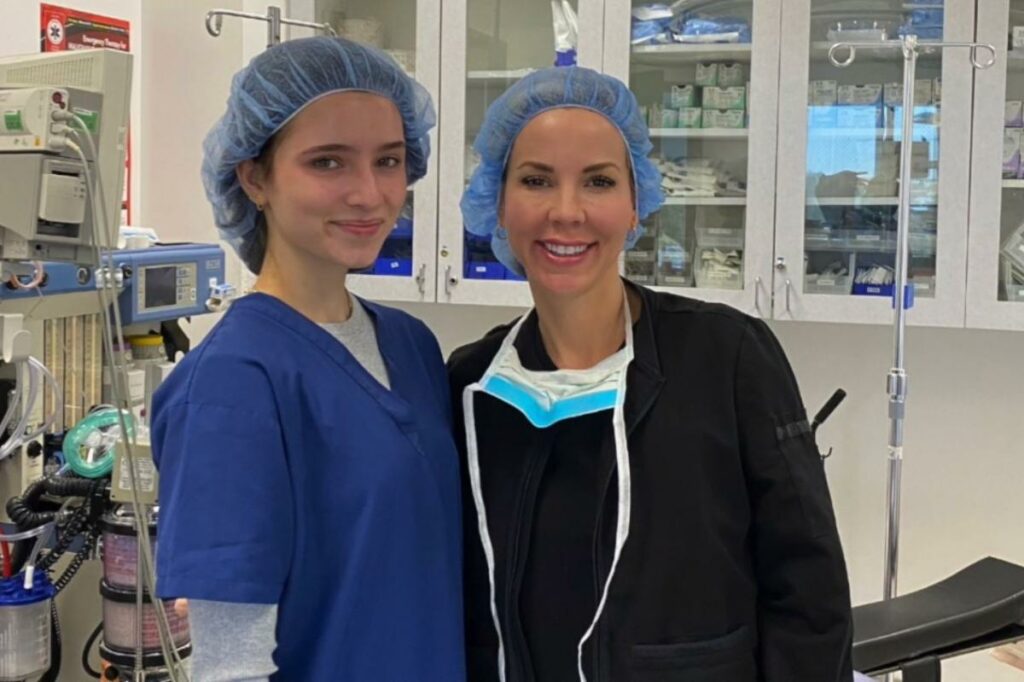For more than a quarter-century, Newport Harbor High School has offered its juniors the opportunity to connect with mentors as they explore potential careers.
Today, the 1:1 Junior Career Mentor Program, which is funded by the Newport Harbor Educational Foundation, features a roster of more than 250 professionals from a wide range of fields, including arts, law enforcement, medicine and construction.
“This is an amazing opportunity for students to see what a career is like up close,” said Counselor Sara Abdelhadi, who recently took over the program after the retirement of longtime director Debbie Brostek. “Their experiences with their mentors can further ignite their passion for something, or it can lead to them discovering a new path in a subject they like.”

To participate, students must have a GPA of at least 2.0 and submit a resume, essay and a questionnaire indicating their top three career interests. After a review process, juniors at the Newport-Mesa Unified campus are matched with mentors in one of their desired fields.
Though the program is not a class, students who complete it can earn credit toward the Experiential Learning Project, a high school graduation requirement in NMUSD.
Junior Maya Snowden got word of the opportunity from her sophomore English teacher. She said she wanted to connect with a mentor who shared her love for writing and who could advise her on career options.
“Everyone learns the basics in school, but there’s practical knowledge that you can only gain from a mentor,” she said.
Students who are accepted into the program are responsible for connecting with their mentors and meeting with them at least five times over the course of eight months. Following an initial session to interview their mentors about their lives and careers, they continue to gain insight through job shadowing. They also get to meet with their mentors in more casual settings to get a glimpse of their lives outside of work.
Mentor Carrie Freitas, founder of Kitchen Table Marketing + PR, said the program goes beyond just sharing information about careers; it also provides life skills while exposing students to new worlds and possibilities.
“The students gain an understanding of what their chosen career could look like, plus some perspective on life from someone else’s point of view,” Freitas said. “That type of exposure can open up new worlds and possibilities for them.”
Before they finish the program, students must write essays reflecting on their mentorship experience. The mentors and mentees also gather for an annual Mentor Appreciation Breakfast in March to share their experiences. The district says many of the mentorship relationships continue even after the official job-shadowing is over.
